Pan-Seared Duck Breast Recipe | Serious Eats
Your folders
Your folders
Servings: 4

Ingredients
Export 9 ingredients for grocery delivery
Instructions
Step 1
With a sharp knife, gently score duck breast skin in a tight crosshatch pattern, keeping the scores 1/8 inch apart. If you prefer a little fat left on the breasts after cooking, just barely score the skin; to render more fat, score more deeply, taking care not to expose the flesh.
Step 2
Season duck breasts with salt, heavily on the skin side and lightly on the flesh side.
Step 3
Place duck breasts, skin side down, in a large, cold sauté pan. Place pan over low to medium-low heat. To keep the edges from curling up, press duck breasts down with the help of a smaller sauté pan. After about 5 minutes, the fat should begin to gently bubble. If the fat is either silent or spitting, adjust heat accordingly. Maintain the gentle bubble of fat, pouring out excess rendered fat throughout the cooking process, until much of the fat has rendered, skin is golden brown, and duck's internal temperature is 125°F (52°C), about 15 minutes.
Step 4
Increase heat to medium and further brown skin if needed, about 1 minute, before flipping and cooking on the flesh side. For medium-rare meat, cook until breast registers 130°F (54°C) on an instant-read thermometer, about 1 to 2 minutes. Continue cooking until duck registers 140°F (60°C) for medium or 155°F (68°F) for well-done. Remove duck from pan and set aside to rest.
Step 5
For the Pan Sauce: Over high heat, deglaze sauté pan with white wine. Scrape up any brown bits stuck to pan and let wine reduce until pan is almost dry and only 1 to 2 tablespoons remain, about 2 minutes. Add chicken stock and let reduce by half, until sauce is sticky and rich, about 2 minutes. Remove sauce from heat and swirl in butter until melted and evenly incorporated. Season sauce with orange juice and zest, salt, and black pepper. Serve with duck breast.
Top similar recipes
Curated for youYour folders

 645 views
645 viewsPan-Seared Duck Breast Recipe
seriouseats.com
4.8
(6)
Your folders
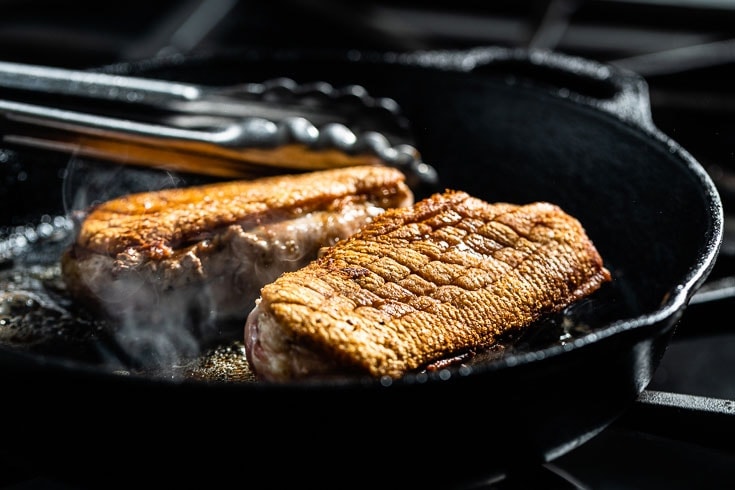
 369 views
369 viewsPan Seared Duck Breast
saltpepperskillet.com
5.0
(1)
22 minutes
Your folders

 254 views
254 viewsFoolproof Pan Pizza Recipe | Seriou...
seriouseats.com
Your folders

 461 views
461 viewsSeared Duck Breast with Blackberry ...
aspicyperspective.com
5.0
(3)
30 minutes
Your folders
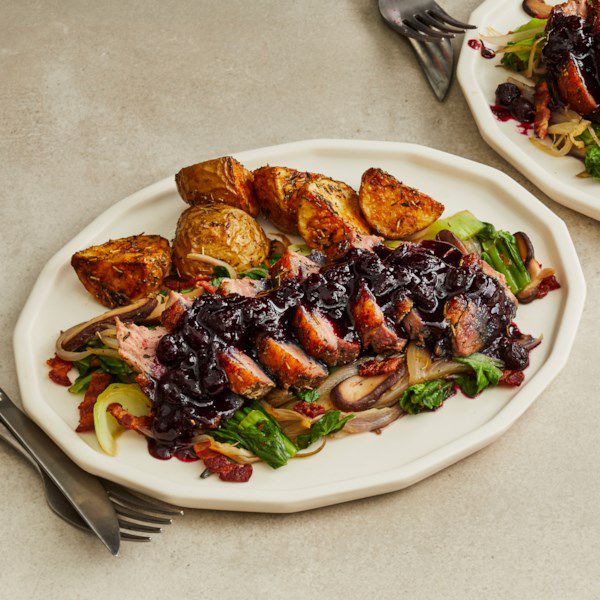
 648 views
648 viewsPan-Seared Duck Breast with Blueber...
allrecipes.com
4.6
(52)
45 minutes
Your folders

 284 views
284 viewsPan-seared duck breast with blackbe...
carolinescooking.com
5.0
(4)
20 minutes
Your folders
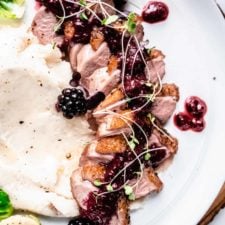
 398 views
398 viewsPan Seared Duck breast with Blackbe...
windycitydinnerfairy.com
5.0
(1)
10 minutes
Your folders

 337 views
337 viewsBerbere Recipe | Serious Eats
seriouseats.com
Your folders

 357 views
357 viewsDetroit-Style Pan Pizza Recipe | Se...
seriouseats.com
Your folders
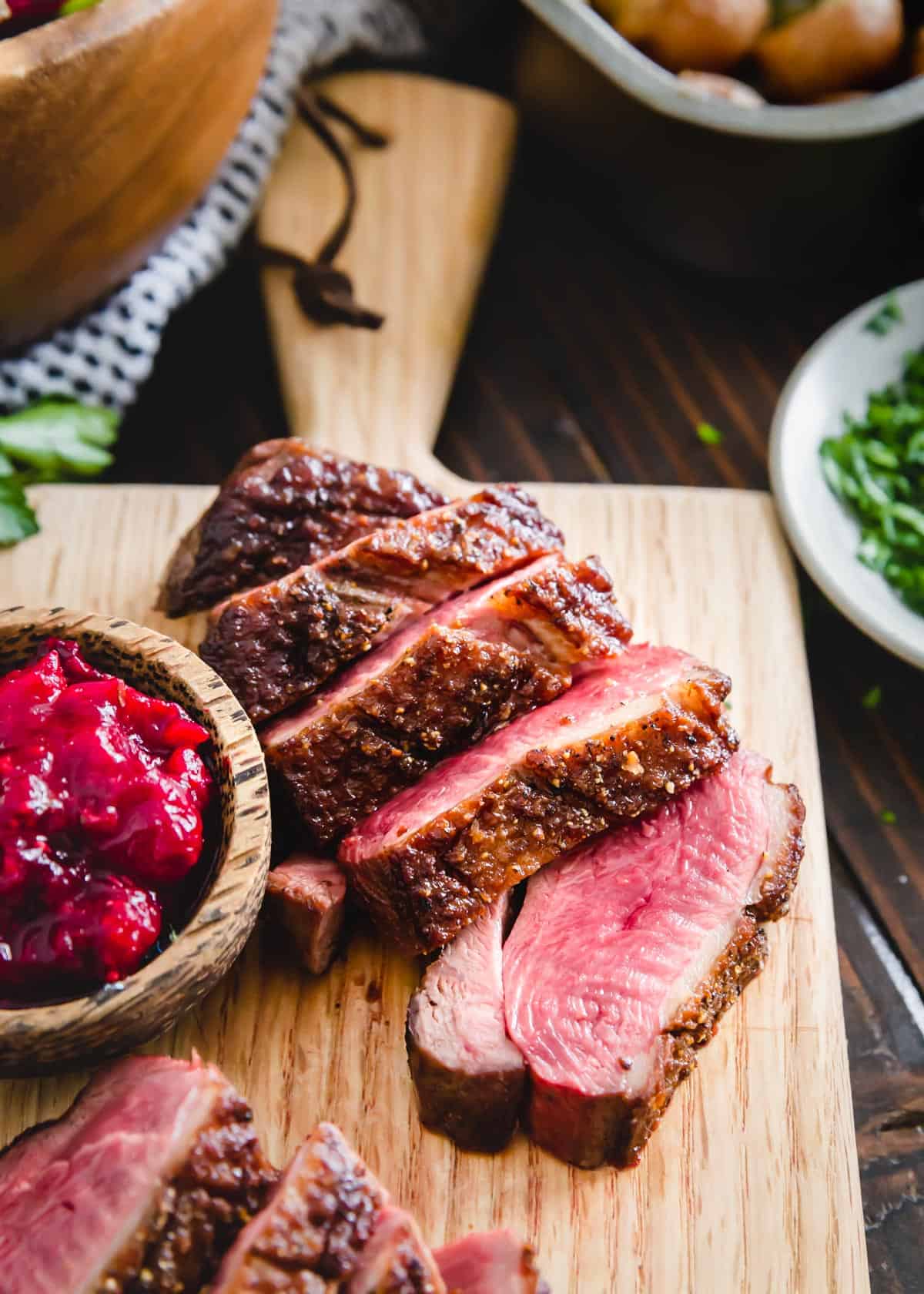
 186 views
186 viewsPan Seared Duck Breast with Cranber...
runningtothekitchen.com
4.9
(115)
10 minutes
Your folders

 216 views
216 viewsPan Seared Duck Breast with Cranber...
runningtothekitchen.com
4.9
(115)
10 minutes
Your folders

 13 views
13 viewsPan-Seared Duck Breast with Plum Sa...
tatyanaseverydayfood.com
5.0
(1)
30 minutes
Your folders
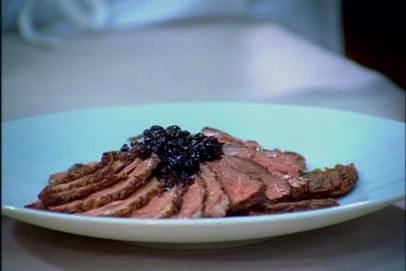
 374 views
374 viewsPan Roasted Duck Breast
foodnetwork.com
4.6
(15)
1 hours, 45 minutes
Your folders

 268 views
268 viewsPan Seared Chicken Breast
simplywhisked.com
10 minutes
Your folders
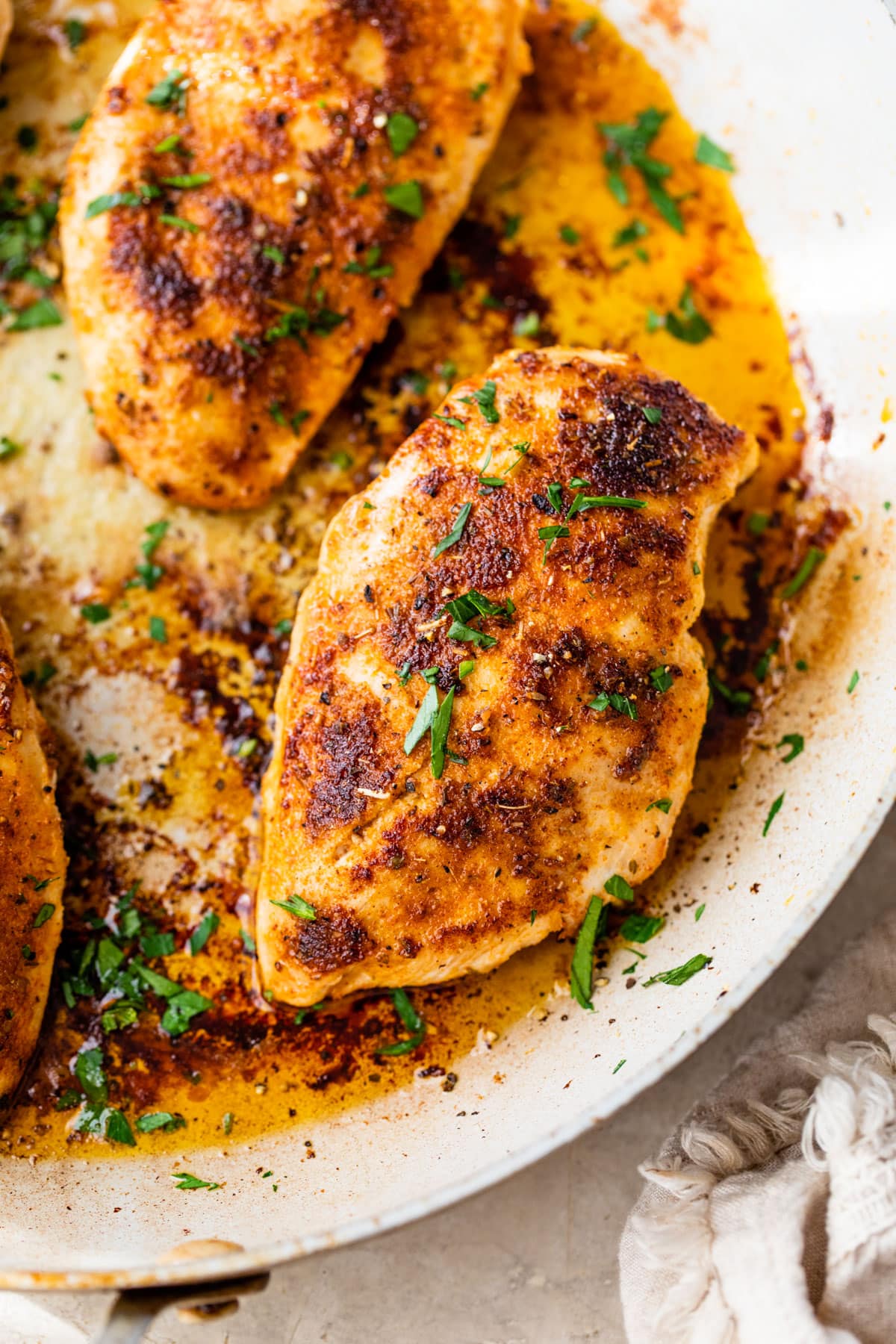
 192 views
192 viewsPan-Seared Chicken Breast
thealmondeater.com
5.0
(22)
10 minutes
Your folders
 103 views
103 viewsPan-Seared Chicken Breast
thealmondeater.com
Your folders

 599 views
599 viewsBrisket Bourguignon Recipe | Seriou...
seriouseats.com
Your folders

 673 views
673 viewsSaag Paneer Recipe | Serious Eats
seriouseats.com
Your folders

 243 views
243 viewsPickled Cranberries Recipe | Seriou...
seriouseats.com